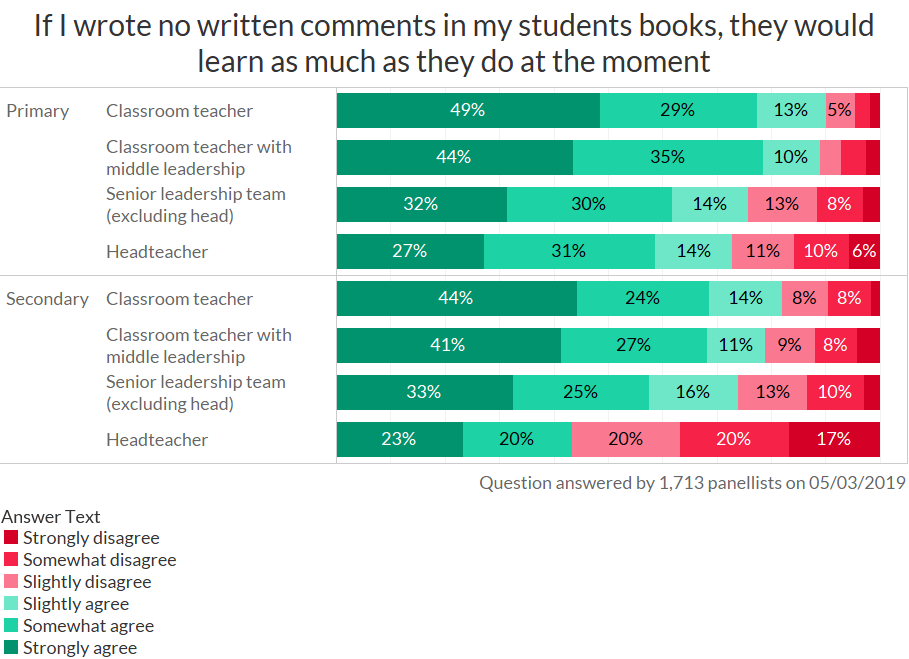Another record-breaking week on Teacher Tapp with over 3,550 of you answering questions on a daily basis now. Thank you! Please keep sharing with colleagues. Here’s what you taught us this week…
Did you have a staff briefing this morning? For about 8% of you, the answer is: ‘Yes, of course, we have them every day!’ Briefings are far more common in secondary schools, where the challenges of staff communication are greater. In primary schools, 41% of teachers don’t routinely take part in a briefing.
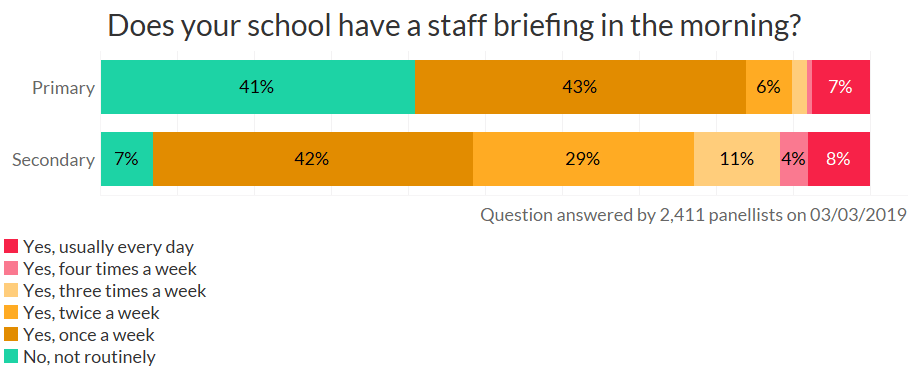
Where briefings are daily, they do at least tend to be short. Still, many of you are spend almost an hour a week just attending your morning briefings. Do you feel your morning briefings are essential?
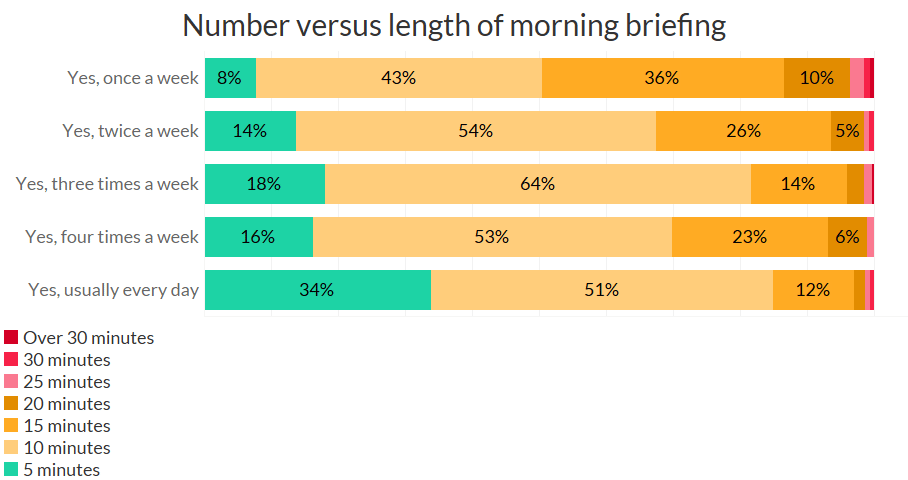
An hour is not the norm, of course. Our calculations suggest that, on average, you spend around 17 minutes a week in morning briefings. This might not
The coffee collective…
Coffee powers the Teacher Tapp team, who cannot understand how teachers get through 5 hours of lessons a day without a PROPER COFFEE!
Just under half of you teach in a school where the coffee is paid for, but it is nearly always INSTANT. AGGGHH… wouldn’t you rather just have a tea instead?
The responses to this question mirror last week’s question about staff rooms. In primary schools, you tend to go to the (one) staff room so it makes sense to club together to buy coffee. In secondary schools, it is harder to organise so teachers are frequently left to their own devices.
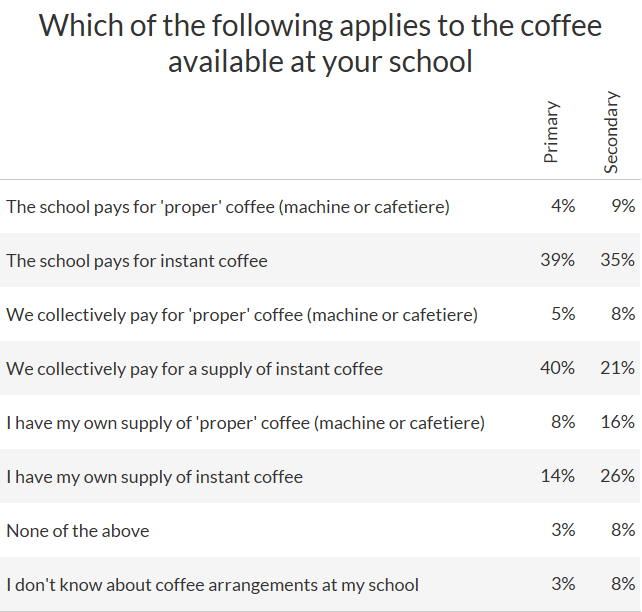
Here at Teacher Tapp we don’t tend to mention regional divides too much, because there is more that unites us (genuinely – responses don’t vary across the country much for most things). However, we couldn’t help noticing that London teachers are much more likely to get coffee bought for them. If you’ve ever wondered where the extra London funding was going… now we know it isn’t just on salary supplements!

To worship collectively or not worship collectively
Schools don’t like to break the rules, if they can help it. Teachers tend to be conscientious types. However, when it comes to collective worship, the vast majority of secondary pupils don’t get their allotted daily dose. Just one-in-20 secondary pupils appear to have had a formal assembly that day, with an extra one-in-10 doing something in the classroom that constituted an act of worship or reflection. The reasons are obvious – hall space is an issue in secondary schools. But daily worship also takes up so much time!

We were intrigued to see that pupils in primary schools serving disadvantaged communities were FAR LESS likely to receive an act of collective worship that day. Why is this? Was the time deemed more critical for other things? Perhaps the complexities of serving a religiously diverse community is an issue?

When we look by school type, we can see part of the answer. We know that the religious voluntary aided and voluntary controlled schools tend to serve slightly more affluent communities (for all kinds of complex reasons that Becky wrote a PhD about). And it is no great surprise that they most likely to have daily assemblies.

Did we read before World Book Day was invented?
Here at Teacher Tapp towers we try to report our data dispassionately. But we make an exception for World Book Day, which forced Becky to spend £16 on a nylon dress at Sainsbury’s the night before. I know what you are thinking… she should have used her imagination and a sewing machine to rustle something together at home. But some people have neither imaginations NOR sewing machines and World Book Day is a nightmare for them! Still, it gives her great comfort to see that once her kids are at secondary school, the dressing up might come to an end (provided she picks a school carefully… this is the kind of stuff that should be in school prospectuses).
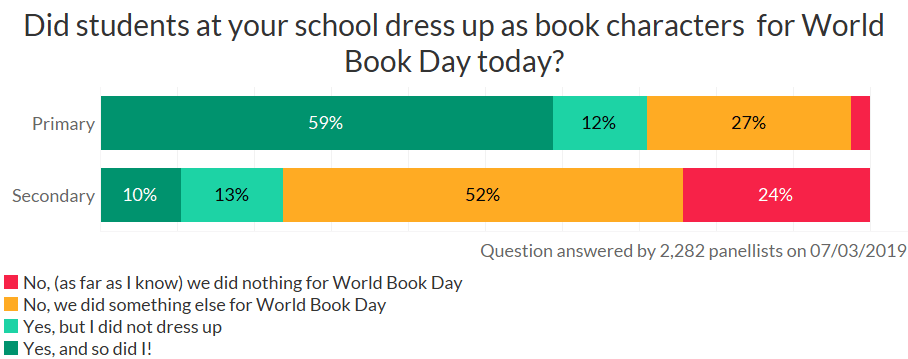
There is a serious point that many people have made about the time and money costs involved for working families. With this in mind, we expected dressing up to be far more prevalent in low free school meals schools serving more affluent communities. We were wrong! If you send your child to a high FSM primary school, then there is an 80% chance you’ll be asked to dress them up for World Book Day!
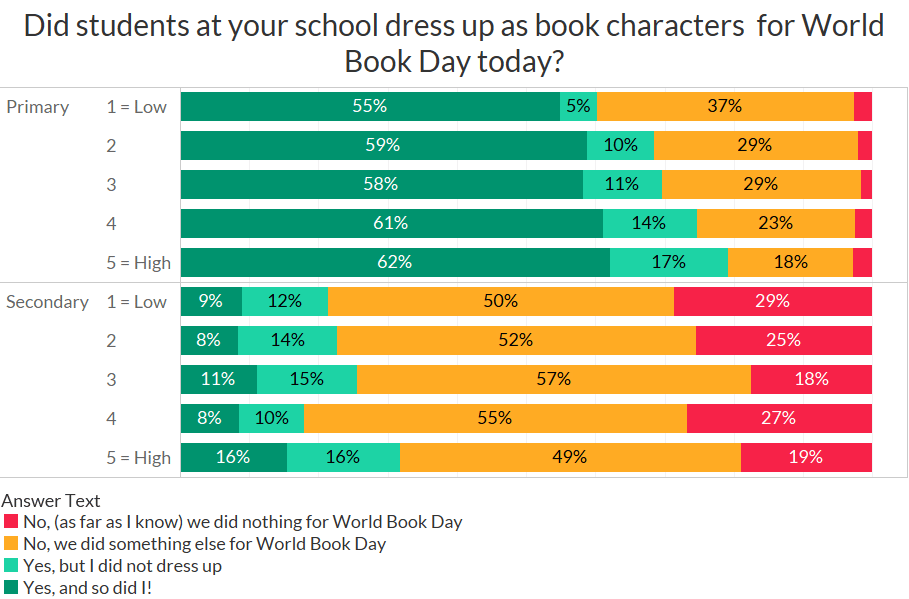
And back to those rare regional differences… dressing up for World Book Day is enormously popular in London where there are also concentrations of high FSM schools. What’s that all about? Let us know your thoughts.
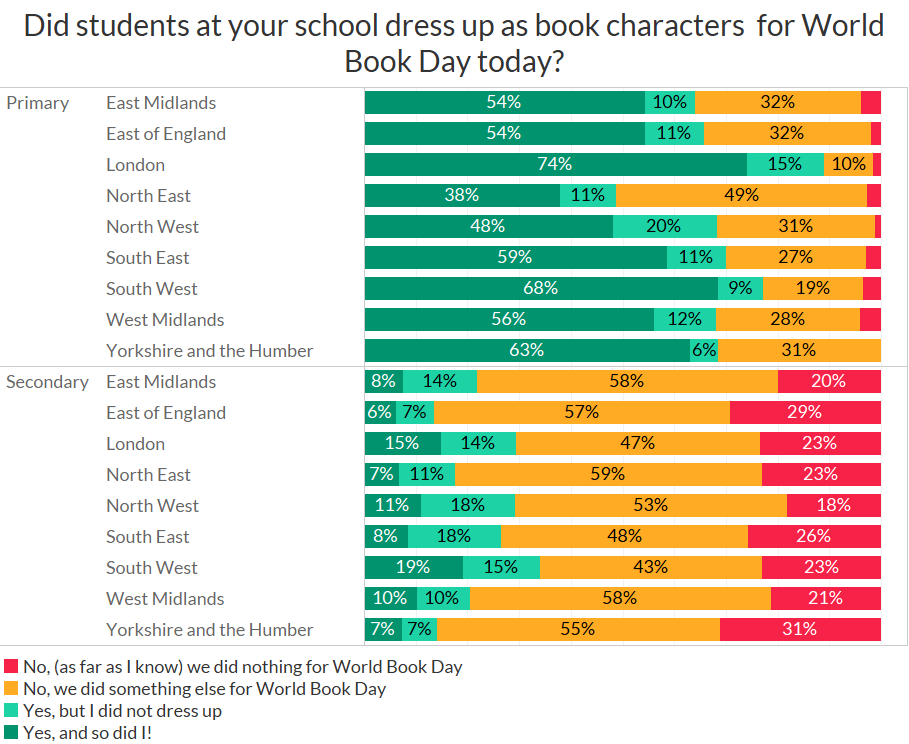
Mark like no one is watching…
We’ve asked this question a few times, but since many of you are quite new to the app, we wanted to give you these astonishing results. Most of you agree (at least somewhat) that students would learn as much as they do at the moment if you did no written marking!
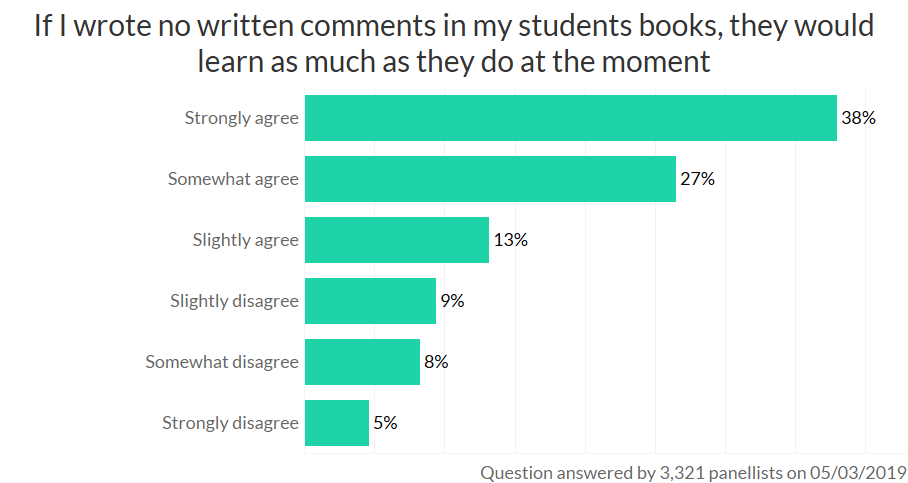
Maths teachers find marking
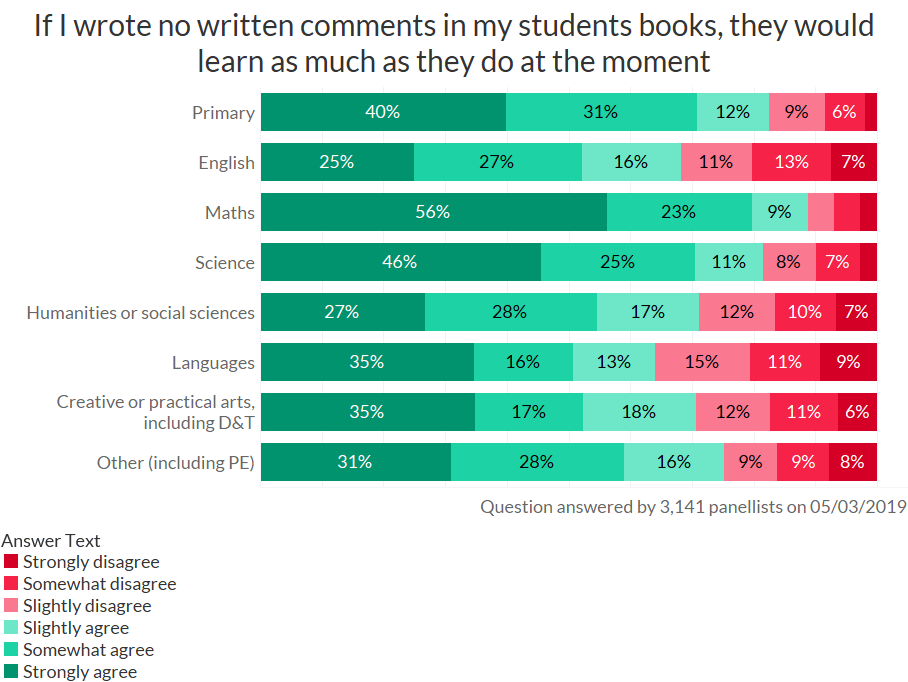
Your response to the marking question is strongly related to how many hours a week you have to teach (and thus mark). Those who most strongly agree have between 2 and 5 years of experience (newbie teachers are less sure whether marking is useful or not, but then they are less sure of everything). And once you are in the senior leadership team and so have little marking to do, you are much more confident about its value!
